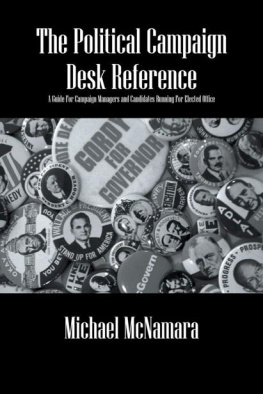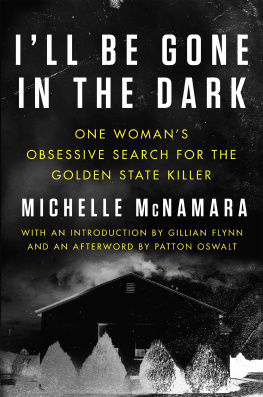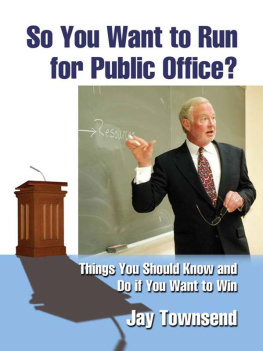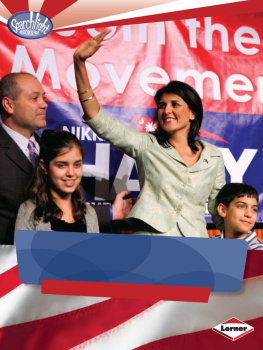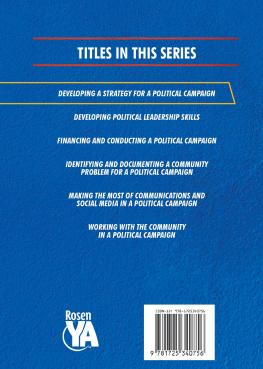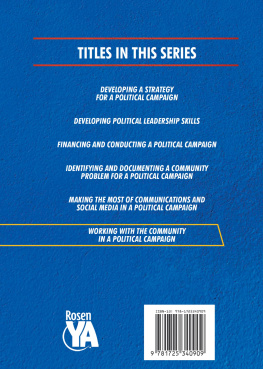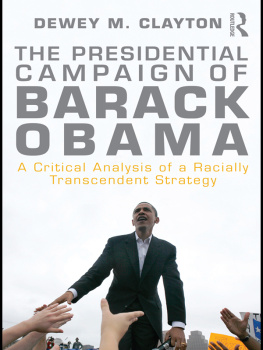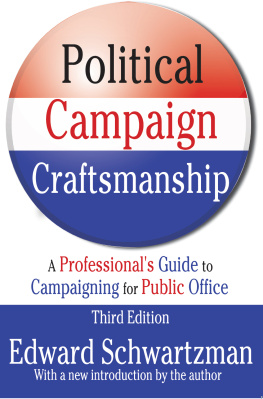McNamara - The Political Campaign Desk Reference: A Guide for Campaign Managers and Candidates Running for Elected Office
Here you can read online McNamara - The Political Campaign Desk Reference: A Guide for Campaign Managers and Candidates Running for Elected Office full text of the book (entire story) in english for free. Download pdf and epub, get meaning, cover and reviews about this ebook. year: 2008, publisher: Outskirts Press, Inc., genre: Politics. Description of the work, (preface) as well as reviews are available. Best literature library LitArk.com created for fans of good reading and offers a wide selection of genres:
Romance novel
Science fiction
Adventure
Detective
Science
History
Home and family
Prose
Art
Politics
Computer
Non-fiction
Religion
Business
Children
Humor
Choose a favorite category and find really read worthwhile books. Enjoy immersion in the world of imagination, feel the emotions of the characters or learn something new for yourself, make an fascinating discovery.
The Political Campaign Desk Reference: A Guide for Campaign Managers and Candidates Running for Elected Office: summary, description and annotation
We offer to read an annotation, description, summary or preface (depends on what the author of the book "The Political Campaign Desk Reference: A Guide for Campaign Managers and Candidates Running for Elected Office" wrote himself). If you haven't found the necessary information about the book — write in the comments, we will try to find it.
The Political Campaign Desk Reference: A Guide for Campaign Managers and Candidates Running for Elected Office — read online for free the complete book (whole text) full work
Below is the text of the book, divided by pages. System saving the place of the last page read, allows you to conveniently read the book "The Political Campaign Desk Reference: A Guide for Campaign Managers and Candidates Running for Elected Office" online for free, without having to search again every time where you left off. Put a bookmark, and you can go to the page where you finished reading at any time.
Font size:
Interval:
Bookmark:

The opinions expressed in this manuscript are solely the opinions of the author and do not represent the opinions or thoughts of the publisher. The author has represented and warranted full ownership and/or legal right to publish all the materials in this book.
The Political Campaign Desk Reference
A Gide for Campaign Managers and Candidates Running for Elected Office
All Rights Reserved.
Copyright 2008 Michael McNamara
V2.0
Cover Photo 2008 Michael McNamara. All rights reserved - used with permission.
This book may not be reproduced, transmitted, or stored in whole or in part by any means, including graphic, electronic, or mechanical without the express written consent of the publisher except in the case of brief quotations embodied in critical articles and reviews.
Outskirts Press, Inc.
http://www.outskirtspress.com
Library of Congress Control Number: 2008935767
Outskirts Press and the OP logo are trademarks belonging to Outskirts Press, Inc.
PRINTED IN THE UNITED STATES OF AMERICA
One of the greatest generals, and the most read general, in the history of the world taught that a general who calculates and plans before setting out on a military campaign will most likely succeed over a general who plans very little. Sun Tzu was a military consultant centuries before Jesus walked the earth, but military leaders and campaign consultants read his words today. Sun Tzu wrote The Art of War which has become the standard by which successful generals, consultants, captains of industry, politicians, educators and any other professionals get ahead and stay ahead.
This manual is designed to provide an overview of the most important components of a campaign from grass roots to fundraising. This manual will guide the reader through the basic steps of planning and running a successful campaign. It does not reveal all of the secrets and strategies that I have learned and employed throughout the years. No book can teach many of the things that only experience and battle can teach.
What this manual will do, however, is provide guidance to a candidate or campaign manager. I hope that the information in this book will give the reader an advantage over an unsuspecting opponent.
This book will not win campaigns, and it will not raise money. Only a candidate and a candidates committee can do that. I strongly urge readers of this book to employ the tactics and strategies outlined herein. And if your opponent also has a copy of this book, then you should hope that he will discard the information or only use it as a conversation piece. This manual provides the direction, but your campaign is the vehicle of success.
A first-time candidate facing strong opposition should always consider hiring an experienced campaign consultant or manager. In fact, even seasoned candidates who have been through many political battles would be wise to employ a professional. A consultant will not perform all of the grunt work on a campaign, but he or she will be able to give it form. A skilled manager or consultant can employ the information in this book and create a plan and team that will be a formidable force in any election of any size.
The necessities to success are superiority in the four major resources of a campaign: time, information, money and people. The key to unlocking those resources and winning is careful planning, deliberate actions, well though out messaging and professionally executed delivery of the message. The details are truly important in planning, and a campaign should not be plotted out in a single evening. Care and time must be put into gathering and processing information.
It is important to point out that some campaigns are referenced in this book to illustrate a point. In the Appendix section, however, I use a fictitious candidate running for a fictitious elected seat in a fictitious county. The appendices help to demonstrate some examples of what various campaign materials will look like or to further assist the candidate or campaign manager reading this book.
Luck is generally not a factor one should count on in winning a campaign, so I will not wish you luck. I will wish you well and urge you to work hard. The euphoria you will feel at the moment of victory makes the many months of effort working up to it worthwhile.
Happy campaigning!
Michael McNamara
There are many reasons for running for office. Sometimes a candidate is disgusted at the way the current administration is running the show. Perhaps a candidate runs for office for professional advancement. Some candidates have made an entire career out of public service and have never held a job in any other sector. Others may want to run because they honestly believe they can make a difference. Whatever the reason a candidate chooses to run for office, there are a few questions that must first be answered.
Why am I running for office?
It seems basic enough, but if a candidate has made it public that he or she is running for office without thinking it through, this basic question can lead to embarrassing situations, and worse lost votes. Few things are worse for a candidate than to be caught off guard by a basic question like this when at a debate, in a public setting or going door-to-door and not knowing what to say. Every candidate needs to know the reason(s) for running for office.
In addition to having an answer for this question, it is important to have a well thought out answer that the candidate is confident in giving. It needs to be credible and sound as though some thought has been put into it. Delivery of the answer should be practiced to the point that the candidate can present his or her reason without much thought. Candidates should look forward to answering this question because it is the first one everyone will ask - including the press.
One may think that only a new candidate could make such a blunder. One of the best examples of how a seasoned candidate from a political family can make the mistake of not thoroughly answering this question is the Presidential Election of 1980. Massachusetts Senator Edward Ted Kennedy had made the decision to run for President against incumbent James Jimmy Carter in the Democratic Primary. Carter was extremely unpopular, and Kennedys campaign had gained steam. Just as Kennedy seemed perched on the cusp of becoming the popular Democratic candidate and snatching the nomination from Carter, Kennedy agreed to appear on a television interview. The interview was the opportunity that Kennedy had waited for to take center stage and steal the show. Unfortunately, he was ill prepared and failed to adequately answer some of the questions including the basic question of why he was running for President. Kennedys popularity and seriousness as a candidate plummeted, and he lost the Primary to the widely unpopular Carter, who in turn lost to Ronald Reagan later in 1980.
The best answers include the message of the campaign, which is a topic that this book will cover. For example, a candidate may be running for office in a mayoral race in which the current mayor has done a seemingly poor job or there are specific points of weakness that the incumbent will face. The challenger in the race should use these weaknesses in the answer along with the campaign theme. Perhaps this challengers slogan is Time for a change, and the point of weakness of the incumbent is the fact that crime has increased under his watch. When asked why the challenger is running, he or she might say:
Font size:
Interval:
Bookmark:
Similar books «The Political Campaign Desk Reference: A Guide for Campaign Managers and Candidates Running for Elected Office»
Look at similar books to The Political Campaign Desk Reference: A Guide for Campaign Managers and Candidates Running for Elected Office. We have selected literature similar in name and meaning in the hope of providing readers with more options to find new, interesting, not yet read works.
Discussion, reviews of the book The Political Campaign Desk Reference: A Guide for Campaign Managers and Candidates Running for Elected Office and just readers' own opinions. Leave your comments, write what you think about the work, its meaning or the main characters. Specify what exactly you liked and what you didn't like, and why you think so.

